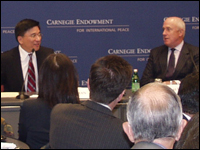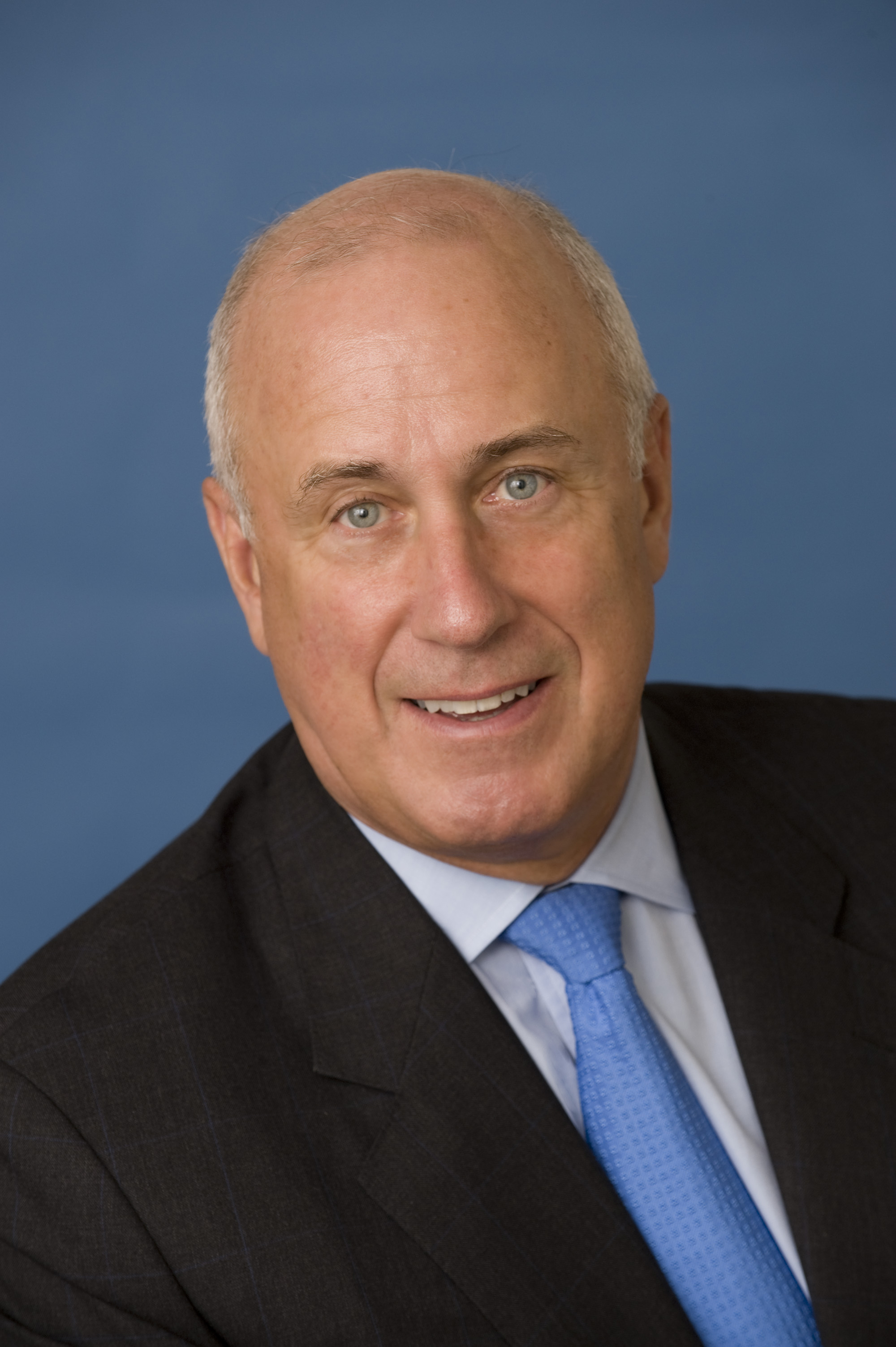{
"authors": [
"Douglas H. Paal",
"K.C. Chan"
],
"type": "event",
"centerAffiliationAll": "dc",
"centers": [
"Carnegie Endowment for International Peace"
],
"collections": [],
"englishNewsletterAll": "asia",
"nonEnglishNewsletterAll": "",
"primaryCenter": "Carnegie Endowment for International Peace",
"programAffiliation": "AP",
"programs": [
"Asia"
],
"projects": [],
"regions": [
"East Asia",
"China"
],
"topics": [
"Economy",
"Trade"
]
}
Financial Services in Hong Kong: Opportunities and Challenges
Wed, May 14th, 2008
Washington, D.C.
IMGXYZ901IMGZYXThe China Program at Carnegie Endowment hosted an event on May 14, 2008 entitled “Financial Services in Hong Kong,” featuring guest speaker Secretary K.C. Chan of Financial Services and the Treasury from the Hong Kong Special Administrative Region. Director Douglas Paal moderated the discussion.
According the Secretary Chan, Hong Kong’s capital market has enjoyed continuous growth over the past six years thanks to the astonishing rate of wealth accumulation in China. The surge in investment demand triggered by the 2.8 trillions USD worth of domestic saving from the mainland presents an unprecedented opportunity for Hong Kong’s capital market, which directly led to the expansion of financial service industry. In addition, Hong Kong’s equity market remains as the most favorable platform for China’s state-owned conglomerates to raise capital. Today, the Hong Kong Stock Exchange is the 7th largest market in the world, makes Hong Kong a global financial center on par with NYC, London, and Tokyo.
Secretary Chan is confident about the competiveness of Hong Kong’s capital market. Compare with mainland stock markets in Shanghai and Shenzhen, which are also growing at a fascinating rate, Secretary Chan believes Hong Kong has advantages in several aspects, including transparency, full disclosure of information, fully convertible currency, and most importantly a truly independent judiciary system. Furthermore, the financial service industry in Hong Kong enjoys a great abundance of human talents along with a well developed financial structure and less tax burden, which make the market more appealing to investors. On the other hand, Hong Kong’s close tie with the mainland economy becomes another major advantage when comparing with foreign stock markets.
However, Secretary Chan also pointed out the challenges that lay ahead for Hong Kong’s financial service industry. Given its close relation with the mainland, the industry should promote further interactions and complimentary developments with the capital markets in the mainland, while it also has a noble duty to push for more reforms in financial infrastructure as well as regulations. While Hong Kong had relatively lower exposure to the ongoing financial fiasco in the subprime market, the crisis nevertheless revealed potential weakness within the financial structure and regulation that Hong Kong has yet to improve. Finally, regulators can increase the competitiveness of Hong Kong’s capital market further by adopting a flexible financial policy that incorporates more innovative financial products such as the hedge fund.
Secretary Chan concluded his remark with the firm statement that Hong Kong will continue to serve its unique role as the bridge between the global financial markets and the booming economy in China.
This summary was prepared by Wayne Chen, Junior Fellow in the China Program
Carnegie does not take institutional positions on public policy issues; the views represented herein are those of the author(s) and do not necessarily reflect the views of Carnegie, its staff, or its trustees.
